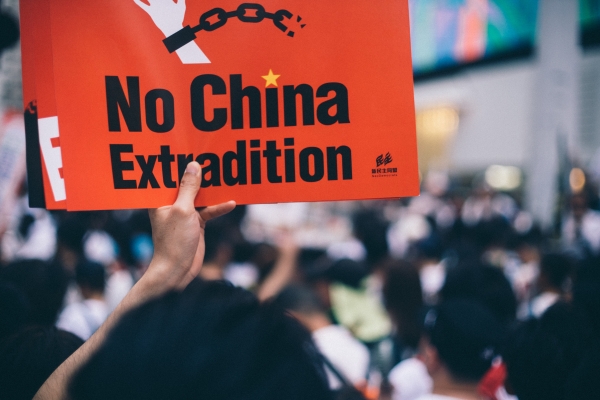
It has been quite a while since the latest protest in Hong Kong started and yet the unrest shows no sign of stopping. Many protesters are risking rubber bullets and tear gas, but what makes them bear all this violence? To understand we need to look through some context that underlies the situation.
Hong Kong’s History
Hong Kong significantly differs from many other cities in China. It was under the British government for 150 years. After the Opium Wars of the nineteenth century, Hong Kong Island was ceded to the British Empire. However, more than 86% of modern Hong Kong, the New Territories, was just leased from China for 99 years. The lease expired in 1997 and negotiations eventually led to handing over the entire city under Chinese hands. The agreement included a proviso that “Hong Kong’s previous capitalist system and life-style shall remain unchanged for 50 years.” So, under the slogan “one country, two systems” Hong Kong was to enjoy independent courts and Western-style freedoms of speech and assembly. As a result, Hong Kong has its own legal system and borders.
It is true that Hong Kong still benefits from the freedom that cannot be seen in most cities in China. But, things have changed rapidly as Communist bosses increasingly expect Hong Kong to know its place. China has become one of the most powerful countries, but it is not willing to loosen the grip on their country. Even after terrible incidents such as the Tiananmen massacre in 1989, China is heading further away from democracy. Political repression and control have only gotten stronger under the reign of president Xi Jinping. Any signs of separating from China have been cracked down upon, and a major problem is that most people in Hong Kong do not see themselves as Chinese.
The Trigger and Process
The Chinese Communist Party’s violation of the one-state and two-state system against Hong Kong has continued since the very day Hong Kong was returned. The Chinese Communist Party’s control and suppression of Hong Kong have gradually strengthened. Complaints accumulated among Hong Kong people and their dissatisfaction exploded when the Hong Kong government introduced a controversial bill that would have enabled extraditions to mainland China. The “Fugitive Offenders and Mutual Legal Assistance in Criminal Matters Legislation (Amendment) Bill 2019” allows the Hong Kong government to deliver criminals to countries or regions that have not signed extradition treaties, including China.
The Hong Kong government has feared that Hong Kong’s anti-Chinese politicians or human rights activists could be repatriated to mainland China. So, it has thoroughly restricted criminal extradition. Hong Kong had not signed extradition treaties with China, Macau, and Taiwan until now. But, if the extradition bill is revised, it will be able to hand over suspects to China. Citizens fear the bill will be abused to send dissidents and human rights activists to mainland China. In other words, simply by supporting democracy in Hong Kong or criticizing figures of the Chinese Communist Party such as Xi Jinping and Li Keqiang, people in Hong Kong could become criminals and be repatriated to China.
On June 9, millions of Hong Kong citizens marched out to the streets. By June 16, the protest grew into a mass demonstration involving almost a quarter of Hong Kong’s population. As a result, Hong Kong’s leader Carrie Lam announced that the government will pause to work on the extradition bill until there are no more social conflicts around this issue. But, she stopped short on fully withdrawing the bill and refused to resign which made the protesters still unsatisfied.
Protesters expressed their anger at mainland China as it seeks to make Hong Kong no different from any other cities in China. Whether the protesters can fulfill their will is unclear but they know that this is the time to fight. However, as the protest prolongs, oppression from mainland China is becoming more and more probable.
Besides physical violence, China is seeking to undermine the legitimacy of the protest by using social networking services such as Facebook and Twitter. According to The New York Times Facebook and Twitter accounts that originated in China tried to spread messages and images that portrayed protesters as violent and extreme. Most of the detected accounts were recently created and had only a few followers. Especially, some Twitter accounts used Chinese IP addresses. Given that Twitter has been banned from China, the account using such IP addresses means that it has been approved by the Chinese government.


